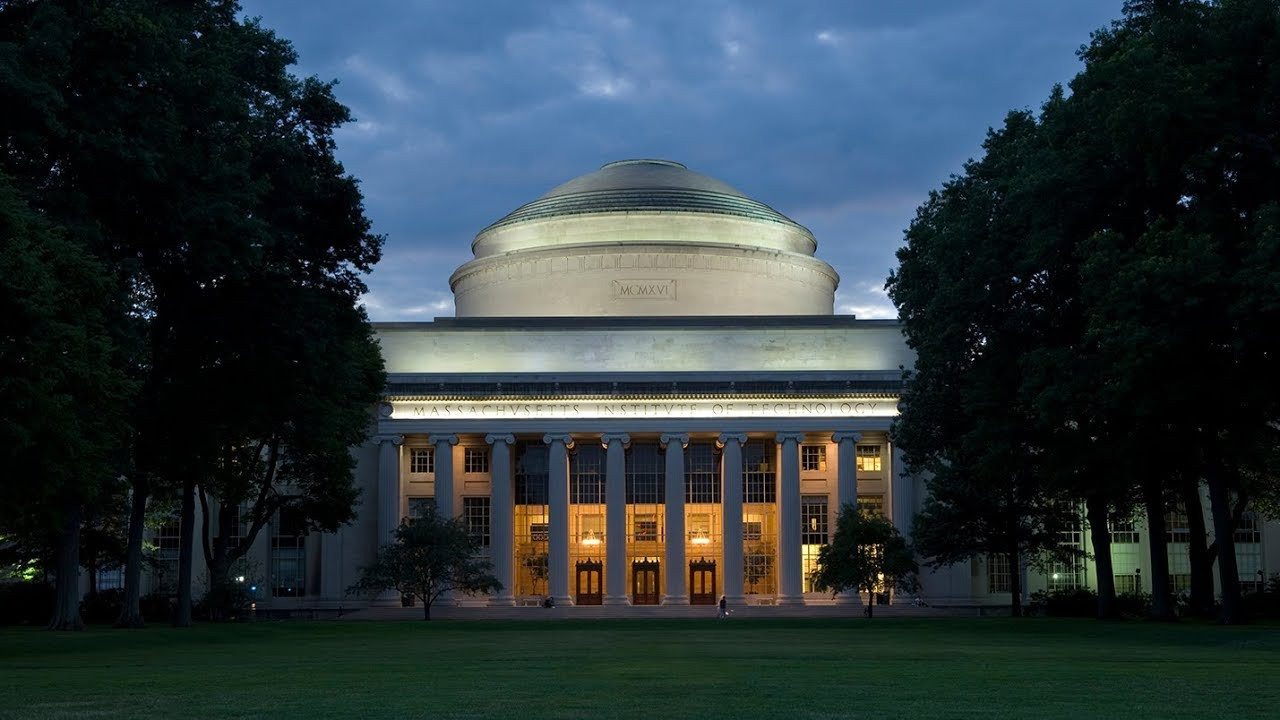Six titans of industry stood onstage at MIT’s Kresge Auditorium, assembled to speak on a panel about artificial intelligence (AI)
copyright by venturebeat.com
 Six titans of industry stood onstage at MIT’s Kresge Auditorium yesterday, assembled to speak on a panel about artificial intelligence (AI), including David H. Koch Institute professor Robert Langer; Helen Greiner, cofounder of iRobot, the Bedford-based company perhaps best known for its line of autonomous vacuum cleaners; Xiao’ou Tang, founder of computer vision startup SenseTime, which last year raised $1.2 billion in venture capital at a valuation of more than $4.5 billion; and Eric Schmidt, former executive chairman of Google.
Six titans of industry stood onstage at MIT’s Kresge Auditorium yesterday, assembled to speak on a panel about artificial intelligence (AI), including David H. Koch Institute professor Robert Langer; Helen Greiner, cofounder of iRobot, the Bedford-based company perhaps best known for its line of autonomous vacuum cleaners; Xiao’ou Tang, founder of computer vision startup SenseTime, which last year raised $1.2 billion in venture capital at a valuation of more than $4.5 billion; and Eric Schmidt, former executive chairman of Google.
The discussion capped off a three-day celebration of MIT’s new Stephen A. Schwarzman College of Computing, which will offer its first classes in physics, economics, biology, economics, machine learning, and related disciplines this fall.
The panelists shared thoughts on a range of topics, but one they repeatedly touched on was entrepreneurship. Entrepreneurs, Schmidt argued in his opening remarks, drive the economy — they’re spigots for ideas that form the basis of industries. “[Founders are] people who are filled with a vision — something they care about — and they personalize it, they believe in it, and they convince others to follow them,” he said.
But, he said, they’re in “need [of] more juice.”
Schmidt was referring to the AI talent shortage in the U.S. — one that’s motivated tech giants like Facebook and Google to offer computer scientists with AI expertise multimillion-dollar salaries and hire talent from well beyond U.S. borders. According to a report by Chinese technology company Tencent, there are about 300,000 AI professionals worldwide, but “millions” of roles available. Moreover, close to 54 percent of chief information officers view this skills gap as the biggest challenge facing their organization.
Institutions like the MIT — and Carnegie Mellon University’s AI undergraduate degree program — can help turn things around, according to Techstars managing director Katie Rae, who leads MIT’s The Engine startup accelerator. She says that around 90 percent of MIT students now take at least one computing course, and around 40 percent are pursuing a computer science major.
“So many kids want to be computer science majors,” Rae told members of the press. “We’ve got to look at some scaled ways that people in other majors can … get a computer science minor or something.”[…]
Thank you for reading this post, don't forget to subscribe to our AI NAVIGATOR!
read more – copyright by venturebeat.com


Six titans of industry stood onstage at MIT’s Kresge Auditorium, assembled to speak on a panel about artificial intelligence (AI)
copyright by venturebeat.com
The discussion capped off a three-day celebration of MIT’s new Stephen A. Schwarzman College of Computing, which will offer its first classes in physics, economics, biology, economics, machine learning, and related disciplines this fall.
The panelists shared thoughts on a range of topics, but one they repeatedly touched on was entrepreneurship. Entrepreneurs, Schmidt argued in his opening remarks, drive the economy — they’re spigots for ideas that form the basis of industries. “[Founders are] people who are filled with a vision — something they care about — and they personalize it, they believe in it, and they convince others to follow them,” he said.
But, he said, they’re in “need [of] more juice.”
Schmidt was referring to the AI talent shortage in the U.S. — one that’s motivated tech giants like Facebook and Google to offer computer scientists with AI expertise multimillion-dollar salaries and hire talent from well beyond U.S. borders. According to a report by Chinese technology company Tencent, there are about 300,000 AI professionals worldwide, but “millions” of roles available. Moreover, close to 54 percent of chief information officers view this skills gap as the biggest challenge facing their organization.
Institutions like the MIT — and Carnegie Mellon University’s AI undergraduate degree program — can help turn things around, according to Techstars managing director Katie Rae, who leads MIT’s The Engine startup accelerator. She says that around 90 percent of MIT students now take at least one computing course, and around 40 percent are pursuing a computer science major.
“So many kids want to be computer science majors,” Rae told members of the press. “We’ve got to look at some scaled ways that people in other majors can … get a computer science minor or something.”[…]
Thank you for reading this post, don't forget to subscribe to our AI NAVIGATOR!
read more – copyright by venturebeat.com
Share this: